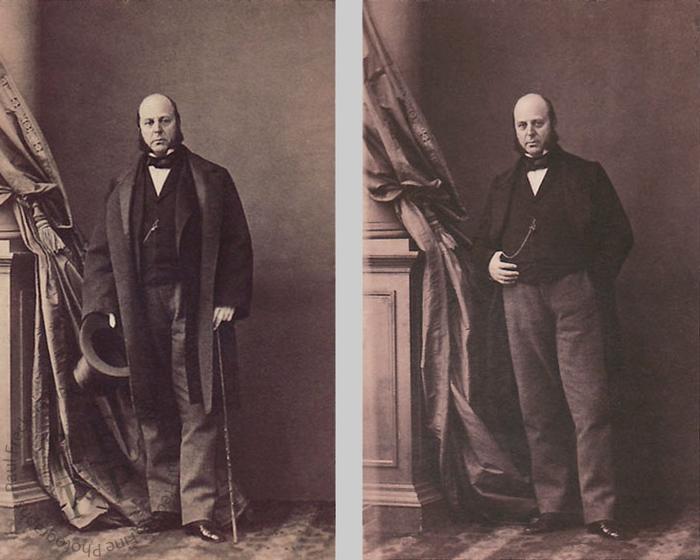Jules Baroche
(1802-1870)
The statesman Pierre-Jules Baroche served as minister in several of Napoléon III’s governments. He was Minister of the Interior from 15 March 1850 to 24 January 1851, Minister of Foreign Affairs from 10 April 1851 to 26 October 1851, President of the Conseil d’État from 30 December 1852, briefly Minister of Foreign Affairs again from 4 January 1860 to 24 January 1860, Minister without portfolio from 3 December 1860, and Minister of Justice from 23 June 1863 to 17 July 1869. At first his political sympathies were liberal, but after the revolution of 1848 he became one of the leaders of conservatism.
Born to a family of shopkeepers, he became moderately well-known as a lawyer. He ran for office unsuccessfully several times during the 1840s, finally winning a National Assembly seat in 1847. He strongly opposed the government of François Guizot and took part in its overthrow. A sincere republican during the 1848 revolution, he subsequently became associated with right wing politics and particularly with the purge of leftist and royalist judges from the French courts and with the defence of the many press censorship laws passed as the republic became increasingly authoritarian.
He resigned his ministry in 1851 in a disagreement with the Prince-President and refused to participate in the coup of 1852 that established the Second Empire but within a year he became president of the Conseil d’État, remaining in that powerful position for most of the next decade. His appointment to the Ministry of Justice was his principal role during the 1860s but as the political tide turned against the Empire he declined in popularity and was dismissed by the Emperor in 1869. Nevertheless, he was so closely linked to the repressive policies of the Second Empire that when it fell, he fled to Great Britain, dying shortly afterwards on 29 October 1870 on the island of Jersey.

